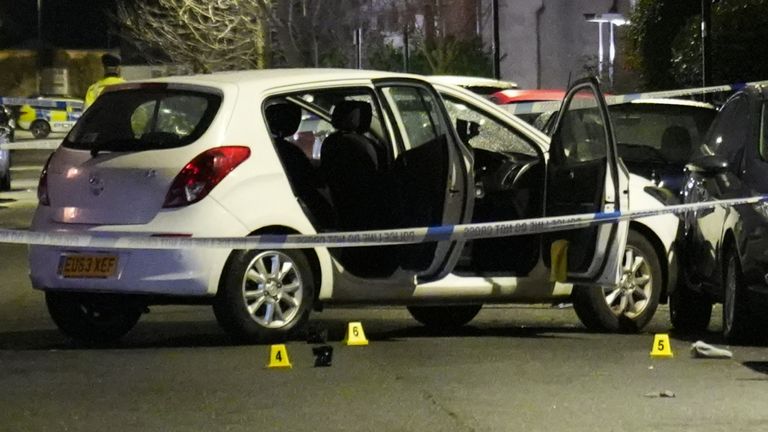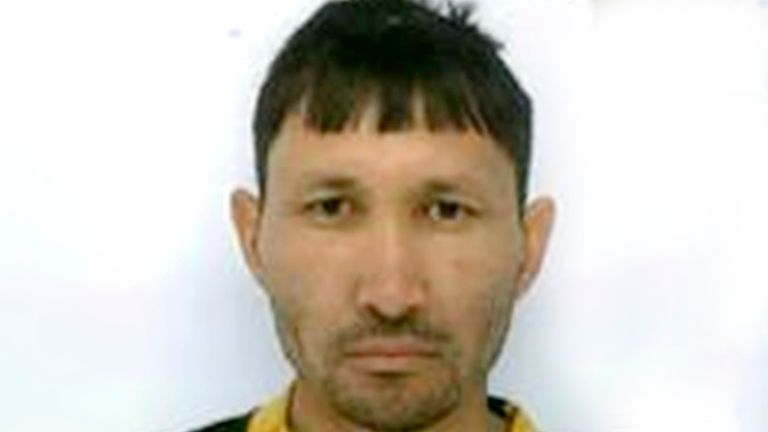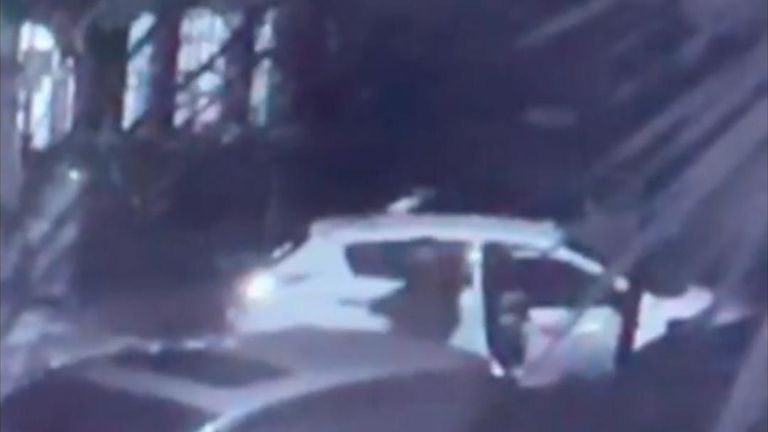'System is not working and is collapsing' says immigration lawyer - as questions raised over Clapham attack suspect's UK status
In 2020, the suspect in the attack, Abdul Shokoor Ezedi, was granted asylum by a tribunal of judges in Newcastle. The case is raising questions about how asylum decisions are made and whether the system is fit for purpose. One lawyer argues it is "not effective".
Friday 2 February 2024 15:10, UK
The revelation that the Clapham chemical attack suspect was granted asylum after being convicted of sexual assault raises serious questions about the UK's asylum system and whether Abdul Shokoor Ezedi should have been in the country at all.
He first arrived in the UK in 2016 in the back of a lorry and his first two attempts to claim asylum failed.
During that time, he committed a sexual assault and indecent exposure and pleaded guilty in 2018. He was given a suspended sentence at Newcastle Crown Court.
Follow live: Police hunt Clapham chemical attack suspect
In 2020, he was granted asylum by a tribunal of judges in Newcastle. It's understood that was an appeal of his previous failed claims.
The decision was reached after a priest vouched that he had converted to Christianity.
The case is raising questions about how asylum decisions are made and whether the system is fit for purpose.
UK law on deporting foreign criminals applies to individuals who are sentenced to a period of imprisonment of at least 12 months or have committed a serious offence.
After admitting both sexual assault and exposure, Ezedi was sentenced to nine weeks imprisonment for the assault and 36 weeks for exposure. Both sentences were suspended for two years, meaning he did not spend time in jail.
However, even when an asylum seeker or refugee is convicted of a serious crime or is sentenced to more than 12 months in jail, they can still appeal deportation back to their country of origin on the grounds that their life or freedom would be threatened due to factors including their religion.
'System is chaotic...it's not effective'
"The system is just collapsing," says Monira Hussain, an immigration lawyer based in Oldham, who believes reform is needed.
"The law is there to protect genuine individuals - however, the implementation of that law and the immigration system is collapsing, it's not working, it's not effective" she says. "The whole system is just chaotic."
She says Ezedi would have had to provide "significant evidence" of his conversion to Christianity when his claim was being processed.
"This perpetrator clearly said that he'd converted to Christianity and therefore he could not go back to Afghanistan.
"I presume part of his claim would have been that because he's now a Christian, he can't go back to a predominantly Taliban, Muslim society and his life would be at risk".
Read more:
Everything we know about the Clapham chemical attack
Analysis: How was a convicted sex offender granted asylum in the UK?
She says there is no current policy that deals with people who've committed crimes but can't be returned to their country of origin and believes the government should be targetting convicted criminals with the Rwanda policy, rather than all new arrivals on small boats.
"If you can't go back to your home country then the policy such as the Rwanda policy would be highly effective for people like this to be removed," she says.
"I had a client who must have had over 24 offences, albeit not offences that attracted a custodial sentence, and he could not be returned to Iran because of his fear of persecution on his own grounds which were religious and political.
"He's still in the United Kingdom" she says.
But she rejects claims by the government that immigration lawyers are to blame for thwarting deportations.
"What they're failing to understand that as a result of their failure of policies and implementation they don't have a grasp of the system" she says.
"As a lawyer, my job is to represent genuine people and that's what I do on a day-to-day basis. We are slogging it out in a system which is not working."




